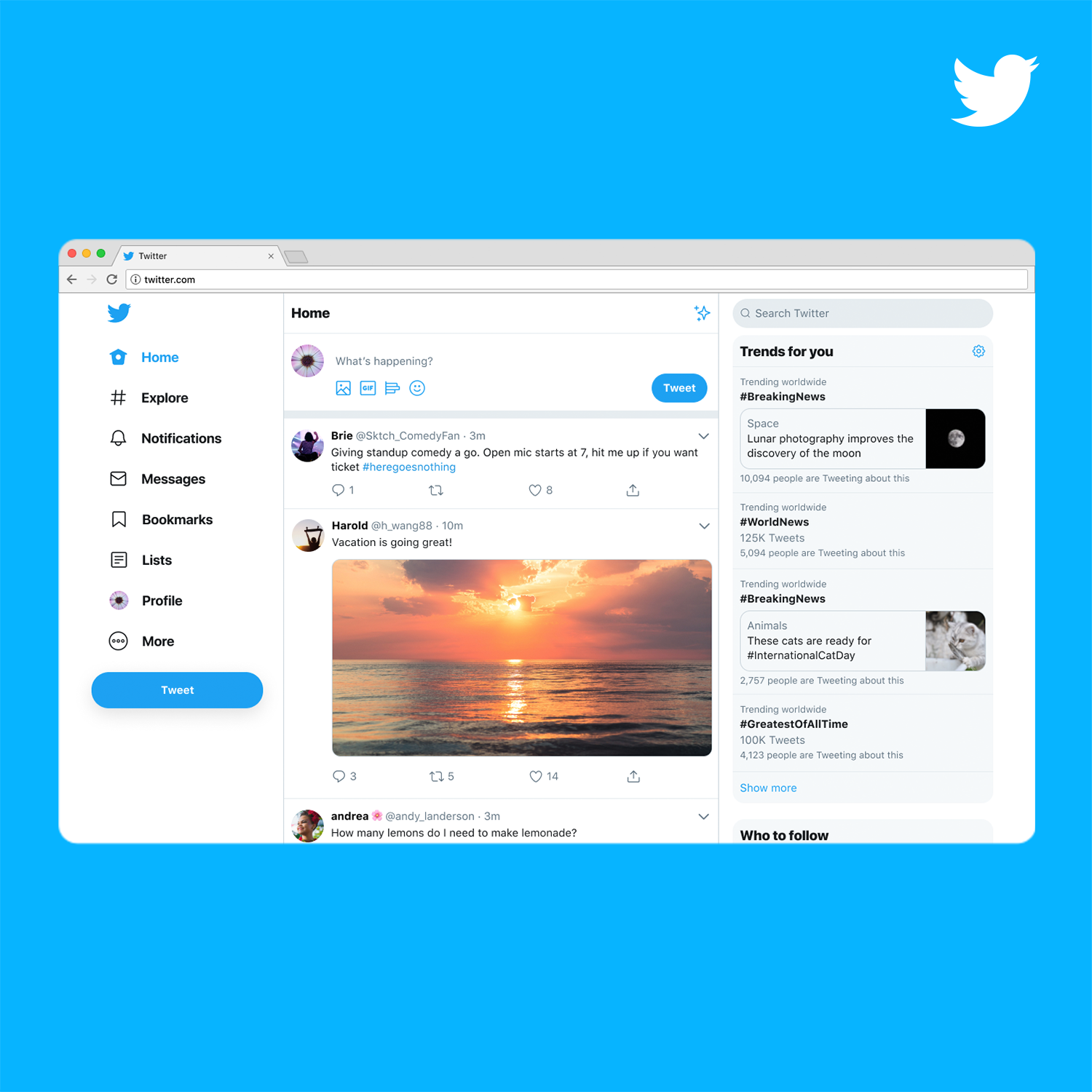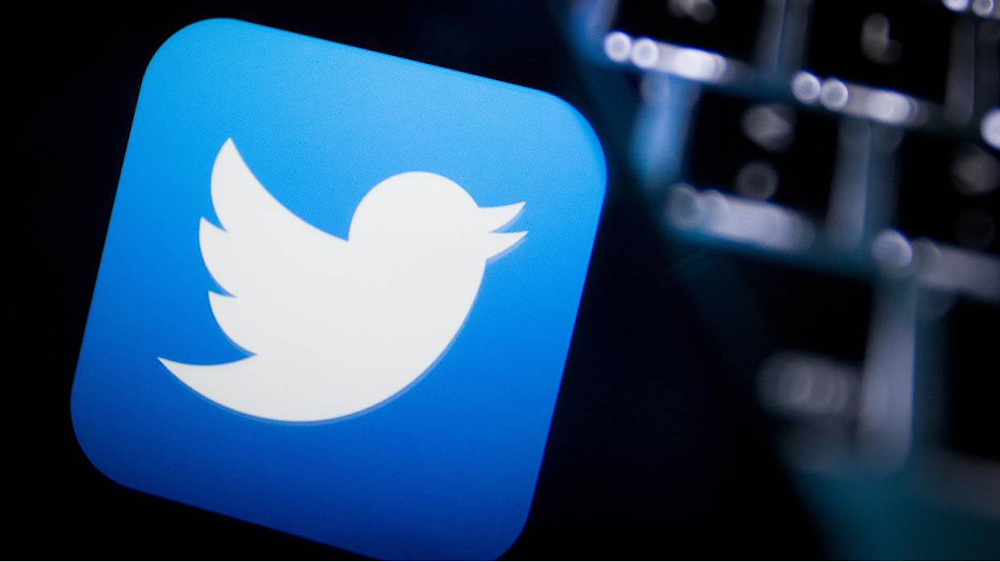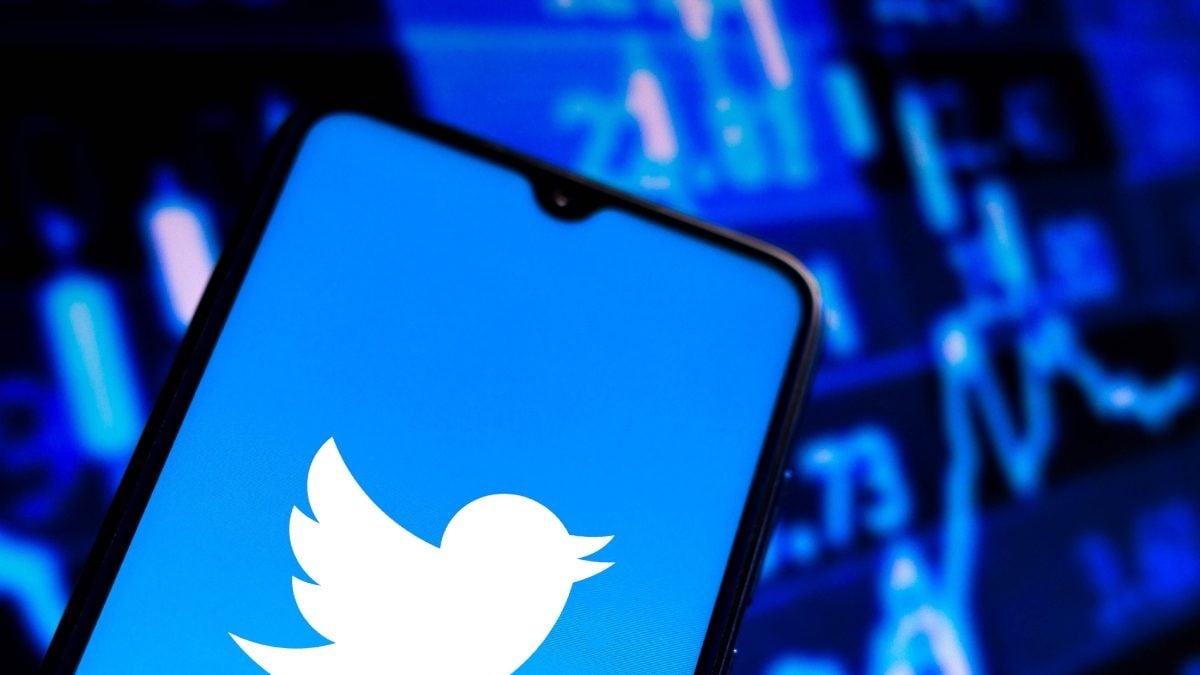Twitter And Online Content - The Luigi Mangione Discussion
Table of Contents
Introduction to Online Content Discussions
How Do Platforms Handle Content?
What Happens When Advertisers React to Content Like "twitter luigi mangione dick pic"?
How Does Content Shape the User Experience?
Why Is Content Moderation So Tricky, Especially With "twitter luigi mangione dick pic" Mentions?
What's the Financial Fallout for Platforms?
The Evolving Social Media Scene
The way we share and consume information online has changed so much, hasn't it? It's like, one minute you're just scrolling through your feed, catching up with friends or seeing what's happening, and the next, something totally unexpected pops up, perhaps even something controversial. This kind of content, sometimes quite personal, can spark big conversations about what's okay to share, and what platforms should do about it. It’s a pretty interesting area, you know, when a specific name or event becomes part of a much larger talk about how social spaces are managed.
You see, when certain topics gain attention, like the mention of "twitter luigi mangione dick pic," it really brings into focus the challenges that online places face every single day. These platforms, they're trying to balance free expression with keeping things safe and welcoming for everyone. It's a delicate act, because what one person finds acceptable, another might find completely out of bounds. This ongoing push and pull shapes how we all interact online, and it also impacts the companies that advertise there, which is a rather big deal for the platforms themselves.
So, we're going to explore some of the bigger picture ideas that come up when something like this happens. We'll look at how platforms try to manage what gets posted, what it means for the businesses that pay to show their messages, and how all of this affects you and me, the people who actually use these services. It's a look at the real-world consequences of online actions, and how these digital spaces are, in a way, always trying to figure things out as they go along.
Luigi Mangione - Who Is He?
When a name, like Luigi Mangione, becomes associated with a particular online event or piece of content, it's quite natural to wonder about the person behind the name. Public figures, or even individuals who suddenly find themselves in the public eye due to a viral moment, often spark a lot of curiosity. While specific personal details about Luigi Mangione in the context of the "twitter luigi mangione dick pic" mention are not widely available in public records related to this type of online content discussion, we can still think about the general profile of someone who might find themselves connected to such a conversation. It's almost as if the name itself becomes a symbol for a broader discussion about online content and its effects.
For instance, people might assume a person involved in such an incident could be a public personality, or perhaps someone whose private life accidentally spilled into the public view. The internet, you know, has a funny way of doing that. It can make anyone a topic of conversation, sometimes without their full consent. So, while we don't have a deep personal history to share about this specific individual in relation to the mentioned event, we can consider the kind of information that typically surfaces when someone's name gets linked to online happenings. It's more about the phenomenon of online visibility than about a detailed biography, in this particular instance. Here's a general idea of what people might look for:
| Name | Luigi Mangione |
| Known For | Associated with specific online content discussions |
| Public Status | Varies; potentially a private citizen whose name became publicly linked to an event, or a minor public figure. |
| Online Presence | Likely exists, but specific details related to the mentioned event are not broadly published. |
| Impact on Discussion | His name, in this context, serves as a focal point for broader conversations about platform content rules and user experiences. |
It's important to remember that when a name gets tied to an online incident, the story often becomes bigger than the individual. It becomes a way to talk about the rules of the internet, about privacy, and about what platforms like Twitter choose to allow or remove. So, in a way, Luigi Mangione's name here is less about a personal story and more about a prompt for a wider discussion on digital ethics and platform management, which is rather interesting, actually.
How Do Platforms Handle Content?
When something goes sideways online, especially with content that might be considered inappropriate or against the rules, platforms like Twitter have to act. We've seen instances where Twitter, for example, has had to make some pretty significant decisions. For instance, there was a time when a particular organization was barred from advertising on the platform, which is a pretty serious step, you know. This happens when content or activities associated with an advertiser don't align with the platform's guidelines, which are put in place to keep the environment safe for all users.
And it's not just about stopping ads. Sometimes, these platforms go a step further. We heard about how Twitter donated a rather large sum, $1.9 million to be precise, which an organization had spent on advertising globally. This money was then given to academic research focused on elections and related initiatives. This kind of move shows that platforms sometimes try to make amends or contribute to causes that align with their stated values, especially when there's been a public issue. It's their way of saying, "We're taking this seriously," and trying to do some good with funds that might otherwise be tied to controversial associations. It's a public gesture, basically, that aims to show accountability.
These actions, like barring advertisers or redirecting funds, really highlight how platforms are constantly trying to refine their approach to content. They're always trying to figure out where to draw the line, balancing freedom of speech with the need to prevent harm or misuse. It's a tough job, because what seems clear to one person might look very different to another. So, they have to be pretty careful with how they set and enforce their rules, especially when it comes to sensitive subjects or mentions like "twitter luigi mangione dick pic" which can stir up a lot of debate.
What Happens When Advertisers React to Content Like "twitter luigi mangione dick pic"?
The relationship between social media platforms and their advertisers is a really important one, you know? It's like, platforms depend on advertising revenue to keep the lights on, and advertisers want to make sure their brand is seen in a good light. So, when controversial content, or even just the *mention* of something like "twitter luigi mangione dick pic," starts circulating, it can make advertisers pretty nervous. They don't want their products or services appearing next to something that might upset their potential customers or damage their reputation. This is a big reason why platforms are so keen on content moderation.
We've seen that when a platform faces issues with its content environment, advertisers might just decide to pull their money. It's a simple business decision, really. If they feel their brand isn't safe, or if the platform's management seems to be going in a direction they don't agree with, they'll just pack up and go somewhere else. This has a pretty direct impact on the platform's finances, as you might imagine. Losing advertising dollars means less money for development, for paying staff, and for generally keeping the service running smoothly. It's a rather significant consequence, honestly.
So, the way a platform handles tricky content, and how it communicates its values, really matters to the businesses that advertise there. It's not just about the numbers of users; it's about the quality of the environment. If a platform is seen as a place where anything goes, or where harmful content is allowed to spread, then companies that value their public image will likely distance themselves. This pressure from advertisers is a powerful force that often pushes platforms to be more rigorous with their content policies, even when it involves difficult or sensitive topics, which is kind of understandable, when you think about it.
How Does Content Shape the User Experience?
Think about why people use social media in the first place. A big chunk of folks, over half in some surveys, actually, feel that Twitter is a good place for staying connected. For example, a 2016 Mintel survey and a 2017 Twitter insiders report, which looked at over a thousand participants, showed that people really appreciate keeping up to date with friends and following what’s happening in the world. This sense of connection and staying informed is a pretty core part of the user experience. It's about feeling like you're part of something, you know, a community where you can share and learn.
But the kind of content you see, including mentions like "twitter luigi mangione dick pic," can really change how you feel about using the platform. If your feed is constantly filled with things that make you uncomfortable or angry, it’s going to affect that positive feeling. People want to feel safe and comfortable in their online spaces. They want to see things that are interesting, funny, or informative, not necessarily things that are shocking or upsetting. So, the overall content mix plays a huge role in whether people stick around or decide to find somewhere else to spend their time online. It's a pretty big factor, actually, in user retention.
Even small details, like your profile photo, contribute to this sense of community and personal connection. The platform suggests making sure your profile picture is a recognizable image of you, which helps others know who they're talking to. This seemingly simple advice is all about building trust and making interactions feel more personal and, well, human. When the environment feels less personal or more chaotic due to certain types of content, it can chip away at that sense of connection that draws people to social media in the first place. It's all connected, you see, the content and the feeling you get from using the service.
Why Is Content Moderation So Tricky, Especially With "twitter luigi mangione dick pic" Mentions?
Content moderation is a bit like playing whack-a-mole, honestly. We've heard people say that the "dumb shananigans are killing twitter accounts lol and new ones are popping up playing wackamole with twitter retards." This pretty colorful description highlights a real challenge: as soon as one problematic account or piece of content is taken down, another seems to pop up somewhere else. It’s a never-ending battle for the people trying to keep these platforms clean and safe. This makes it really hard to keep up, and it can feel like the platforms are always a step behind, which is kind of frustrating for users.
And it's not just about removal; it's also about how the rules are applied. Some users feel that "Twitter is kind of shit with the bans and snitching." This sentiment points to a common frustration: that the rules aren't always applied fairly or consistently. What gets banned for one person might seem to slip through for another. This can lead to a lot of distrust and resentment among the user base. People want clear rules and consistent enforcement, especially when it comes to sensitive content or mentions like "twitter luigi mangione dick pic." It's a very fine line to walk, trying to be fair to everyone while still enforcing community guidelines.
Plus, the sheer volume of content is just staggering. Millions of posts go up every day, and trying to review all of it, or even just the flagged content, is a monumental task. Platforms rely on a mix of automated tools and human reviewers, but neither is perfect. Automated systems can miss nuances, and human reviewers can be overwhelmed. So, even with the best intentions, things will inevitably slip through the cracks, or decisions will be made that some users disagree with. It’s a messy process, and it’s always evolving as new types of content and new ways of misbehaving emerge online, which is quite a challenge for them.
What's the Financial Fallout for Platforms?
The financial health of a social media platform is pretty much tied to how well it manages its content and its public image. We've seen that Twitter, for instance, is now worth more than 70% less than when it was purchased just a couple of years ago. That's a really significant drop, and it shows just how quickly things can change in the online world. A big part of this decline can be linked to how advertisers perceive the platform, which is a rather crucial point for any business that relies on advertising revenue.
It seems that "fleeing advertisers evidently didn’t want to be associated with his homophobic,." This statement points to a clear reason for the financial struggles: brands don't want their advertisements appearing on platforms that are perceived as having a hostile or problematic environment. When the public discourse on a platform becomes toxic, or when the owner expresses views that are widely seen as offensive, companies get worried. They worry that their brand will be tainted by association, and so they simply stop spending their money there. This direct link between platform management, content moderation, and advertising dollars is a very real thing, you know.
So, the decisions made about content, about who is allowed to post what, and about the overall tone of the platform, have a direct impact on the bottom line. If a platform can't assure advertisers that their brands will be safe, then those advertisers will find other places to spend their marketing budgets. This creates a cycle where declining ad revenue can lead to fewer resources for moderation, which in turn can make the content environment even worse, leading to more advertisers leaving. It's a difficult situation to turn around once it starts, and it shows just how sensitive the financial side of these platforms can be to public perception, especially when something like the "twitter luigi mangione dick pic" discussion highlights content issues.
The Evolving Social Media Scene
The online world is always changing, and what people use social media for is pretty diverse. It's true that, as some of you might already know, "a lot of escorts on twitter/reddit/ and social media outlet tryst, pd, ter, p411, work the same way." This highlights how various communities and types of content, some of which are quite niche or adult-oriented, find a place on these platforms. It shows that social media isn't just about sharing cat videos or news; it's a vast ecosystem where many different kinds of interactions happen, which is quite fascinating, honestly.
This diversity in usage means that platforms have to constantly adapt their rules and moderation efforts. What's acceptable in one community might not be in another, and what's legal in one place might not be elsewhere. This makes content moderation incredibly complex, because they're trying to cater to a global audience with very different norms and expectations. It's a bit like trying to set one set of house rules for an entire planet, which is, you know, pretty hard to do effectively.
Ultimately, whether it's about keeping up to date with friends or engaging with more specialized content, the goal for users is often about connection and information. The platforms, in turn, are trying to provide that space while also managing all the challenges that come with it. The discussions around specific incidents, or even just the mention of "twitter luigi mangione dick pic," serve as reminders of the ongoing tension between open communication and the need for a safe, well-regulated online environment. It's a continuous balancing act, and one that is still very much in progress for all these big online spaces.



Detail Author:
- Name : Earnest Ledner
- Username : vondricka
- Email : powlowski.davon@gmail.com
- Birthdate : 1991-11-03
- Address : 9332 Botsford River Apt. 158 Stiedemannberg, TN 35408-0535
- Phone : +1.934.245.2874
- Company : Gibson-Doyle
- Job : Brickmason
- Bio : Mollitia ipsum tempore incidunt harum aut occaecati. Minus quo nostrum quod eligendi est. Aliquid in et corporis similique consequuntur. Tempora et nisi qui quasi quia tempora.
Socials
twitter:
- url : https://twitter.com/rachael_dev
- username : rachael_dev
- bio : Corporis qui est deserunt. Tempora corporis aliquam quia quaerat minus ipsa qui. Sequi quas et maiores a ut.
- followers : 352
- following : 2004
tiktok:
- url : https://tiktok.com/@rjakubowski
- username : rjakubowski
- bio : Necessitatibus saepe suscipit adipisci eveniet qui.
- followers : 768
- following : 2609
instagram:
- url : https://instagram.com/rachael.jakubowski
- username : rachael.jakubowski
- bio : Qui possimus est sed molestiae praesentium minima. Magnam quis corporis sit itaque in.
- followers : 6917
- following : 900